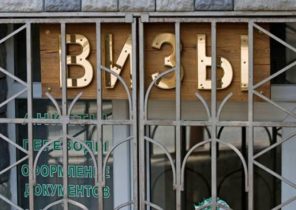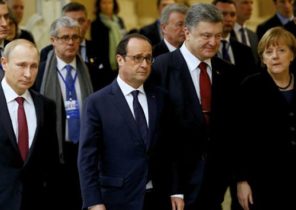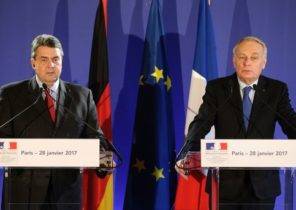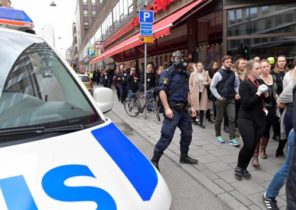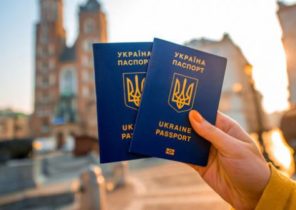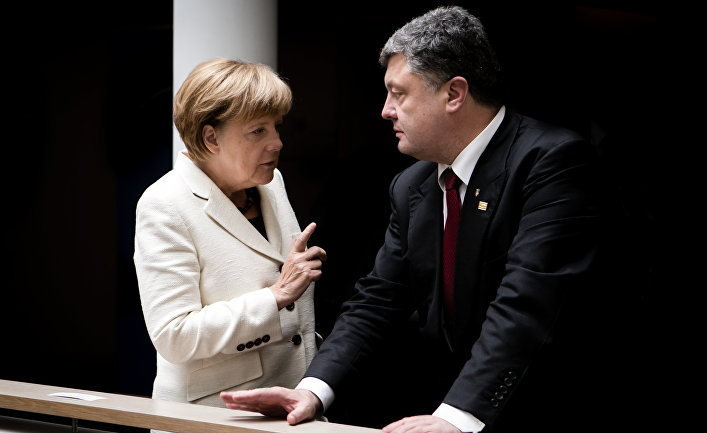
Germany is one of the few countries that held a consistent position regarding the Russian-Ukrainian conflict. While the UK concentrated on Brexia until Donald trump understands who controls the terrorists in the Donbass, while France and the Netherlands shudder from the prospect to the far-right leadership, and a dozen countries of the European Union I can not wait for the lifting of sanctions, Germany remains the last Bastion of stability and the most stable support of Ukraine in the Western world.
Against this background, the German Ambassador Ernst Reichel made a statement that caused a diplomatic scandal and a flurry of indignation in social networks: elections in occupied Donbas can be held without the withdrawal of Russian troops. In response to the protests of official Kiev in the Ministry of foreign Affairs of Germany Dole noted that Berlin continues to insist on the implementation of the Minsk agreements. And later even said that I see no contradiction between the words of Reichel and official position of Germany.
What is behind the scandalous statement of the Ambassador — versed “Explorer.”
Other wording, but the meaning is the same
Reichel made the holding of elections without the withdrawal of occupation troops, based on the precedent in the German Democratic Republic. Recent elections in East Germany really took place as Soviet troops have not left the area. However, from a historical point of view, such a comparison is incorrect, because at the time of the elections in the GDR, Moscow effectively abandoned the “Brezhnev doctrine”, but now it revived, and in a more aggressive variant.
Statement Reichel was not definitive. The Ambassador acknowledged that to hold elections in such circumstances will be difficult, but possible under certain conditions. Nevertheless, the fact that such a scenario is considered, angered Kiev and the Ukrainian foreign Ministry has called Reichel “on the carpet”. Initially, it was clear that this is hardly a solely personal opinion of the Ambassador or a reservation. First, Reichel had previously made similar statements: the wording was different, but the meaning is the same.
“Not agreed, and is unlikely to be agreed that Ukraine regains control, and then pass the elections,” — said the Ambassador at the end of December last year. Year craziness this message went unnoticed. But to write off the words of Reichel on the reservation is not possible — it was his consistent position.
New foreign Minister
Secondly, the position of the Reichel could not be inconsistent with Berlin. At least it goes against the traditions of world diplomacy — ambassadors are repeaters of the will of the country. But not only that. On 27 January the new Minister of foreign Affairs of Germany became Vice-Chancellor Sigmar Gabriel. He is part of the political camp that advocated a more lenient policy towards Russia. Last spring, Gabriel spoke about what the EU might want to think about the lifting of sanctions.
Immediately after the appointment of Gabriel, the official representative of the Ministry Martin Schaefer said that the new foreign Minister is interested in establishing good relations with Moscow. “Russia is an important neighbor of Europe. It stands in the agenda of the new foreign Minister, otherwise can not be. It is an important partner for talks,” said Schaefer.
Important detail — supervisor Reichel is foreign Minister, not Chancellor.
Mazes Of “Minsk”
To accuse Germany of betrayal would have been hastily and not wisely. In fact, the position of Berlin, including the political camp of Angela Merkel, stable: you need to follow the Minsk agreements. Paragraph 9 of the agreement: “the Restoration of full control over the state border from the Ukrainian government throughout the conflict zone, which should begin on the first day after local elections and be completed after a comprehensive political settlement”. Under the settlement refers to the holding of elections and constitutional reform.
Both Germany and France stand for the parallel execution of political posts and security. This is not news as the fact that the Franco-German “road map” of the Minsk agreement Kiev is not satisfied with for obvious reasons — it may lead to the de facto legalization “L/DNR”, which will be a Trojan horse in the Ukraine.
Berlin was and remains the ally of Kiev in the confrontation of Russian aggression. Witness the tough and consistent policy of the Chancellor for sanctions. But the German leadership directly interested as soon as possible to resolve the conflict, and we must accept as a given: the conditions of reintegration of Donbass for Germany is not essential for Ukraine.
Kiev has repeatedly signaled that it will not go to elections until the Russian troops leave Donbas. This is a no-go option at least because of the strong public and political resistance. Last year Ukraine managed to defend their vision (especially it was difficult in the late summer and autumn). Now just start a new round.
